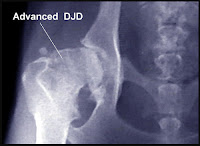
There is much debate in veterinary medicine about what you should be feeding your dog but one thing everyone agrees on is the amazing properties of omega-3 fatty acids. These helpful little guys are abundant in certain plants and marine fish oils and have been shown to help with treatment of common abnormalities for our dogs and cats.
Allergic skin disease, itching and ear infections are frustrating and frequently treated skin conditions of both dogs and cats. Multiple studies have shown that using high doses of fatty acids for six weeks or more decreased itchiness in greater than fifty percent of the study patients. Those that did not experience a decrease in itching, did show a decrease in skin redness or swelling associated with allergies. Fatty acids have also been found to have a synergistic effect with antihistamines which even further decreases a patients discomfort from allergies.
 Another common ailment for dogs and cats is arthritis, especially given the obesity rates in companion animals. Arthritis or degenerative joint disease (DJD) occurs when abnormal motility in a joint causes the protective cartilage of that joint to rub against each other in a pathologic manner. This results in a wearing down of cartilage until you have one bone grinding on another causing pain and inflammation. Laboratory studies looking at how omega-3 fatty acids affected canine cartilage metabolism found that our friend the fatty acid decreased cartilage degradation in experimental tissue samples.
Another common ailment for dogs and cats is arthritis, especially given the obesity rates in companion animals. Arthritis or degenerative joint disease (DJD) occurs when abnormal motility in a joint causes the protective cartilage of that joint to rub against each other in a pathologic manner. This results in a wearing down of cartilage until you have one bone grinding on another causing pain and inflammation. Laboratory studies looking at how omega-3 fatty acids affected canine cartilage metabolism found that our friend the fatty acid decreased cartilage degradation in experimental tissue samples.What does that mean? It means adding high levels of fatty acids to your dog’s diet could protect
 the cartilage thus slowing progression of DJD. Hill’s created J/D which is a prescription diet for animals with arthritis containing high levels of fatty acids. In developing this food they did numerous studies and found that animals with arthritis showed increased range of motion and weight bearing, along with decreased pain after feeding the J/D diet for three to six months.
the cartilage thus slowing progression of DJD. Hill’s created J/D which is a prescription diet for animals with arthritis containing high levels of fatty acids. In developing this food they did numerous studies and found that animals with arthritis showed increased range of motion and weight bearing, along with decreased pain after feeding the J/D diet for three to six months.In addition, a follow up study found that feeding the J/D allowed owners to decrease the dose of nonsteroidal anti-inflammatory drugs such as Rimadyl while maintaining a comparable level of comfort. The amazing fatty acid can not only help prevent DJD but also aid in managing pain.
Fatty acids have also been thought to improve treatment of chronic kidney disease, cancer and heart failure. Essentially they have the potential to help with so much and there is relatively no downside. The most common side effects are soft stool or diarrhea, if you notice this just back off on the amount you are adding to your pet’s diet. It is also reported that extremely high levels of dietary fatty acids can cause decreased blood clotting ability but this is very rare.
 There are multiple ways to increase the amount of fatty acids to your pet’s diet. An easy way would be to feed Hill’s J/D diet, the downside is it is expensive and once exposed to air fatty acids begin to break down and become less effective. There are also many types of veterinary products on the market as well. I find it easiest to buy fish oil capsules from Whole Foods (or any other vitamin store) and toss a few in with my dog’s food. The “dose” is 180 mg EPA per 10 pounds but I give my dogs two to three times this amount and have not had any problems.
There are multiple ways to increase the amount of fatty acids to your pet’s diet. An easy way would be to feed Hill’s J/D diet, the downside is it is expensive and once exposed to air fatty acids begin to break down and become less effective. There are also many types of veterinary products on the market as well. I find it easiest to buy fish oil capsules from Whole Foods (or any other vitamin store) and toss a few in with my dog’s food. The “dose” is 180 mg EPA per 10 pounds but I give my dogs two to three times this amount and have not had any problems. 







This is exactly what I've been searching for. Thanks!
ReplyDeleteaquarium